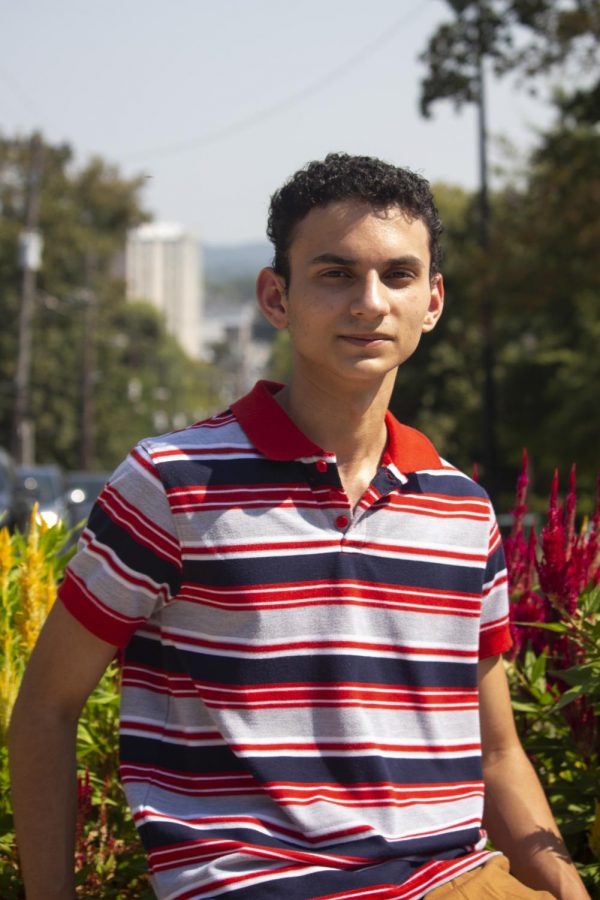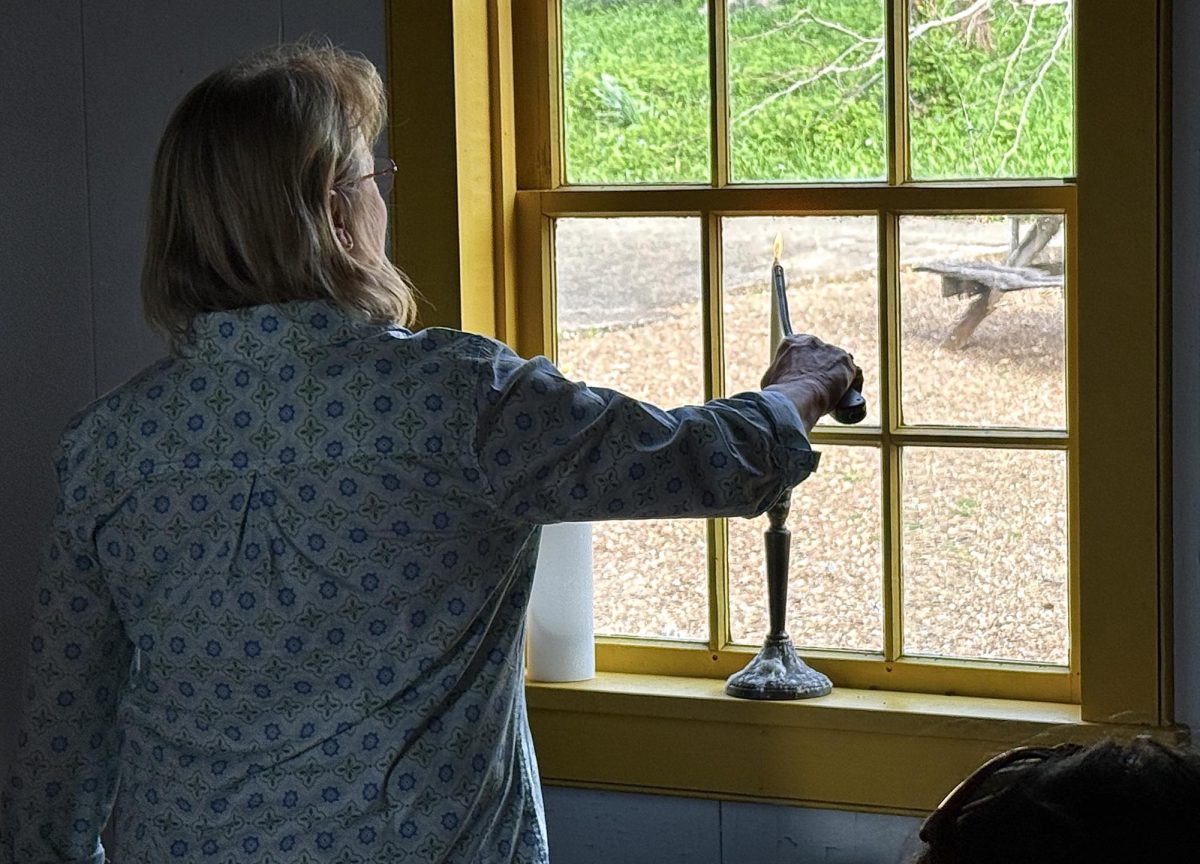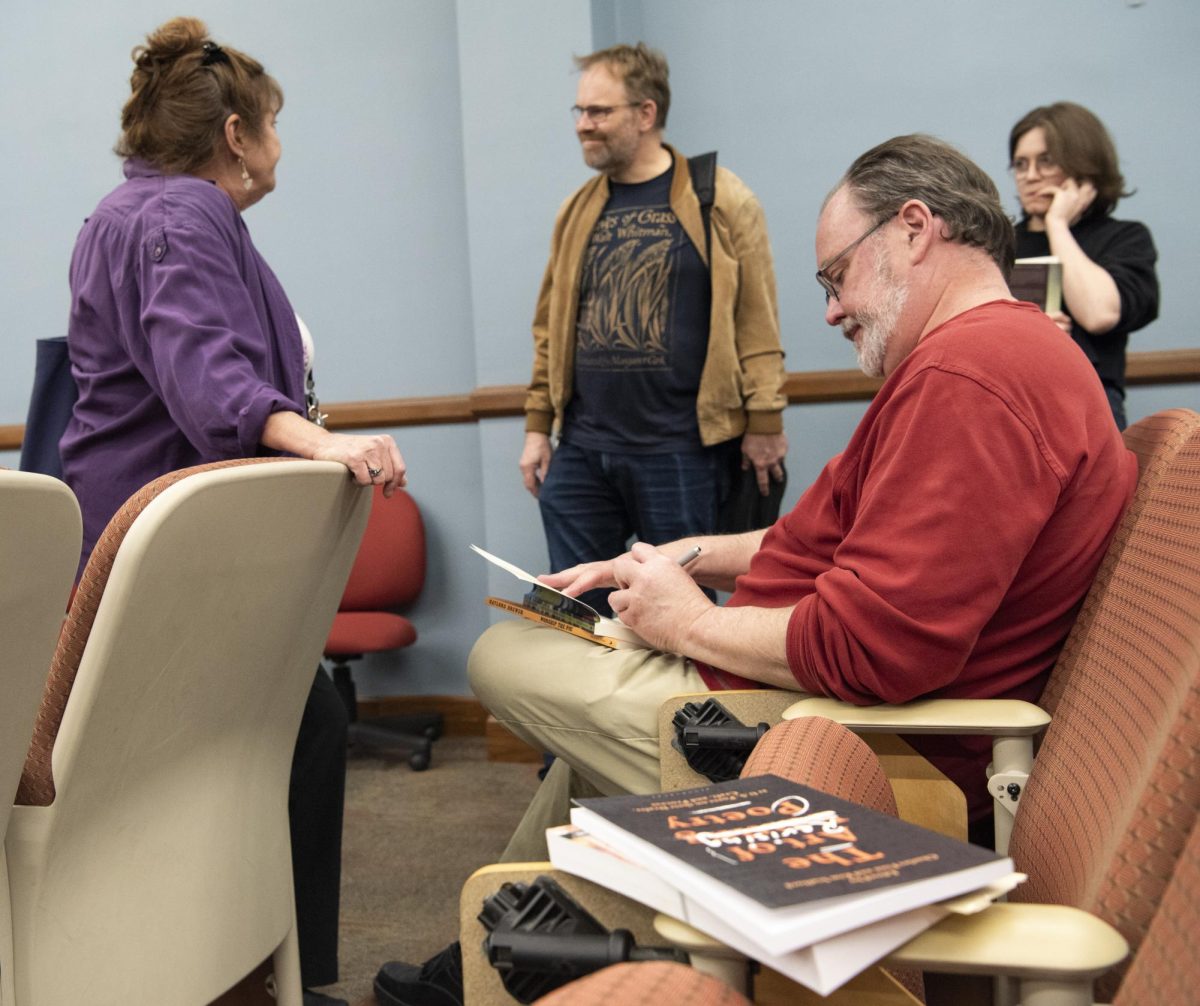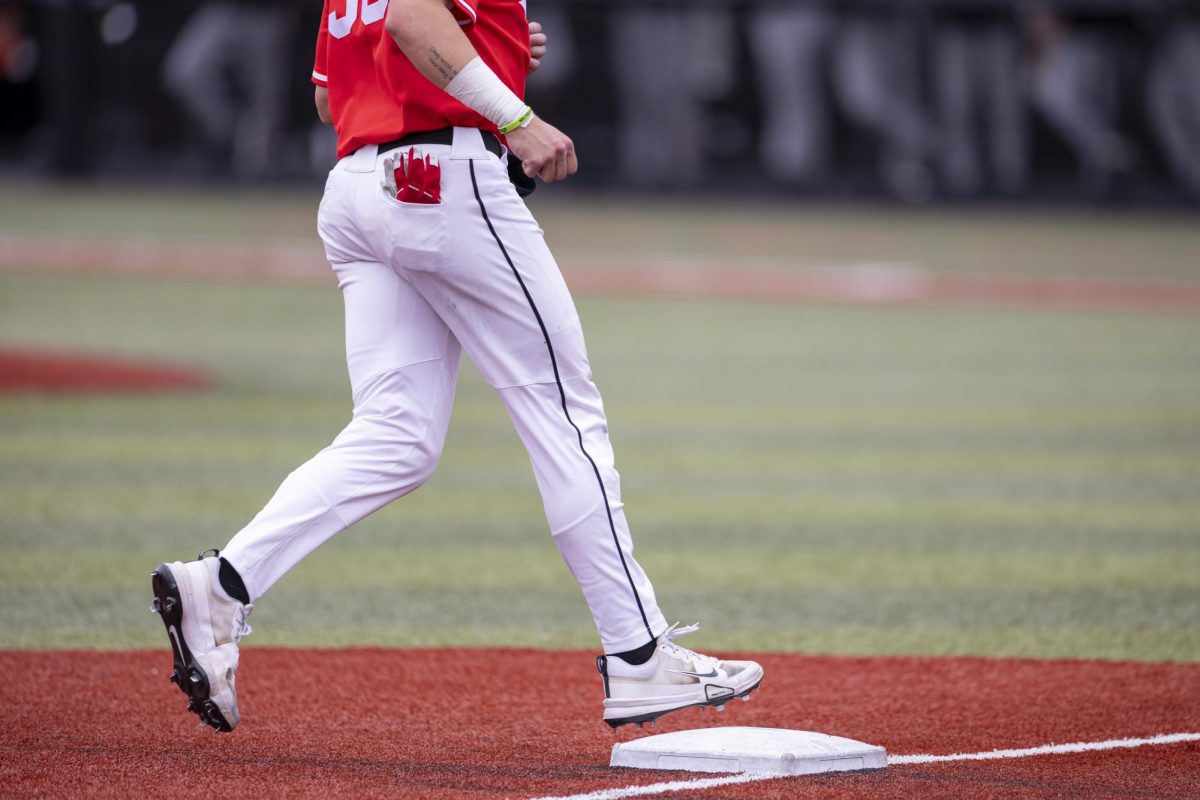‘Manifest Destiny’: Student finds a new home
September 24, 2019
His smile is contagious. As he leans back in his chair and folds his hands in front of himself, he is all smiles. Even as the conversation takes a turn for the darker, his smile stays strong, unbroken by the stories of difficulty and struggle.
Sophomore Andres Casanovas was born in Cuba before moving to Florida around age 8. He recalls the transition between Cuba and the U.S. as being easier than he thought it would be.
“You can get used to anything good,” Casanovas said.
He remembers being surprised and exhilarated at everything from the size of supermarkets to the fact every McDonald’s Happy Meal came with a toy.
“My mom told me that in America, when you ordered a meal for a kid, they’d give you a toy,” Casanovas said. “I couldn’t believe it. You order a meal and they just give you a toy? What an incredible place.”
Casanovas grew up anchored to various social and financial hardships, which came from struggling to learn English and coming from a single-parent household.
His most trying struggle came during sophomore year of high school, when he found himself sleeping on the couch of an efficiency apartment.
‘I couldn’t go outside or be seen’
Casanovas and his family had been evicted from their apartment, leaving few options on where to go. Not to mention, finding a place close enough to Casanovas’ current school was a challenge all its own.
Eventually, a family friend took them in, allowing Casanovas and his family to secretly stay in an efficiency apartment.
“It was a huge risk they took,” Casanovas said, acknowledging the move could have resulted in both his family and the friend losing a place to live.
Casanovas credits the friend’s generosity to where he is today and where he’ll go.
“Wherever I am, I’ll be like, ‘this is because of you,’” Casanovas said of how he plans to thank them. “You made this possible.”
In order to stay undetected, Casanovas got in and out of the apartment through a back door, climbing a fence on his way to and from school. Each day meant getting up early to sneak outside for the bus, and each night meant sneaking back inside to sleep on the family’s couch.
This left Casanovas with limited mobility, as leaving the house at the wrong time risked getting caught. “I had to stay there,” Casanovas said. “I couldn’t go outside or be seen.”
He soon realized this prevented him from participating in extracurricular activities and other typical high school experiences.
“I felt really bad that I wasn’t able to stay for clubs or to hang out with a friend after school,” Casanovas said.
Casanovas kept his situation hidden from peers and teachers, saying he didn’t want anyone to worry.
“I didn’t want people to feel bad for me, because then they measure you differently,” Casanovas said. “Then they expect less from you. And, you know, there’s no fun in that — you can’t grow that way.”
A passion for learning
Casanovas said his mother believed his education was worth the setbacks. At his particular high school, Casanovas was able to receive a high-quality education and even take college-level courses.
“My mom wanted me to have those opportunities, and she wanted me to have that consistency,” Casanovas said.
He said his mother’s passion for education rubbed off on him. “Going to school means a lot, because you know that you’re learning and you’re becoming a better person,” Casanovas said. “Going to school showed me progress and that I wasn’t becoming nothing. And that’s what really gave me hope and made me feel like everything was all right.”
His mother, Maritza, said she takes pride in her son’s work ethic.
“My son, since he was a child, has always been a great, self-driven student,” Maritza said. “I am very proud of my son, and I see that every day he is always making an effort to be better in his studies and in life.”
Daniel Super, a former professor and current mentor of Casanovas, said he believes this passion for learning is something which sets Casanovas apart.
“There are a lot of students that treat college as compulsory, as someone made them come,” Super said. “You can tell that’s not how Andres treats school. He treats it as an opportunity to learn about what he cares about and to equip himself for later in life. I can see how much he cares about learning, not just passing classes. There’s a big difference.”
Growing up fast
After graduating from high school, Casanovas’ family packed up to move to Kentucky. Laughing, he recalled the journey from Florida to Kentucky as the best driving practice he could’ve hoped for — carting a van full of people and valuables over 800 miles to a fresh start.
This presented Casanovas with a new set of challenges, ones most individuals don’t experience until they’re well into college.
“We had to drive around and get our utilities, get signed up for school, which I did most of,” Casanovas said. “When you don’t have an English-speaking family, it’s crazy.”
Casanovas arranged his family’s living situation, enrolled himself and his brother in school and made sure the family was equipped to settle down in Bowling Green. As the best English speaker in his family, it was his responsibility to correspond with the necessary people, forcing him to learn about things like leases, billing and school enrollment.
“I think it all made me grow,” Casanovas said. “Now I don’t take for granted that I have a roof over my head or a car or that I have a savings account.”
‘A lot to come’
Casanovas said he wouldn’t change what he’s been through, because he knows things could’ve been worse. Instead, he’s chosen to take a more positive approach, which Super said he believes is rare.
“His disposition towards life, towards anything that’s in front of him at the time — whether it be his involvement in extracurriculars or
a class assignment or his future — it’s positive,” Super said. “He sees everything in front of him as the Wild West of opportunity. It’s like Manifest Destiny — what can I make of my life and the chances in front of me?”
Casanovas said it’s important people with fortunate means don’t feel guilty for their privilege. It’s better to consider how those means might be used to help others.
“You can focus on your circle of influence and just do what you can do right now, and it will get you somewhere,” Casanovas said. “Don’t worry about the things you can’t do or what’s unfair.”
Casanovas’ high school friend Tyler Tompkins said Casanovas has always pushed himself to take advantage of every situation. He believes the approach will lead Casanovas to a bright future.
“I think his story is one with a lot to come,” Tompkins said. “And I’m sure he’ll make it a good one.”
With a positive attitude and infectious smile never far from his side, Casanovas plans to continue pushing forward and looking to the future instead of the past. Anything else just wouldn’t cut it.
“Some people just stay there, they won’t see the world, because they don’t want to feel uncomfortable,” Casanovas said. “But feeling uncomfortable is the way to improve.”
Features reporter Julie Sisler can be reached at 270-745-6291 and julie.sisler389@topper.wku.edu. Follow Julie on social media at @julie_sisler.













